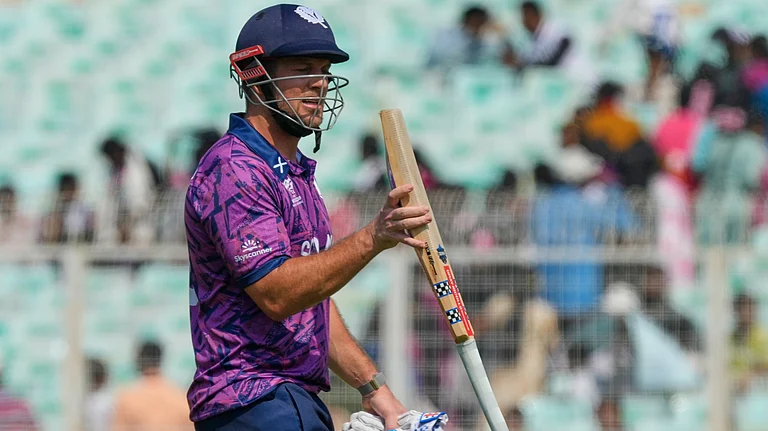IN deciding to allow a parliamentary debate on the sacking of former chief of naval staff, Admiral Vishnu Bhagwat, the government has clearly chosen what it considers to be the lesser of two evils. The treasury benches have convinced themselves that they stand a far better chance of clouding the issues that the dismissal has raised, invoking national security to deny information and making a variety of counter-accusations against Admiral Bhagwat, in a parliamentary free-for-all than in a quasi-judicial parliamentary inquiry.
They may well be right, but the move is shortsighted. Vajpayee would do well to remember that the Bhagwat affair will not stop at Parliament, but will go to the courts. That, after all, is the purpose of the 51-page affidavit that Bhagwat has drafted. And in the inquiry that will follow, the government will have to answer every question that it is trying to avoid. This could be averted if the courts refused to entertain Bhagwat's plaint. But there is not the faintest chance that they will do so for, apart from the personal humiliation and harm he has suffered and the blow his dismissal has dealt to morale in the already beleaguered armed forces, there are at least two crucial issues of law that the courts simply cannot refuse to address. The first is the interpretation of the Navy Act. The second is the appropriate procedure for establishing and punishing breaches of national security.
Defence minister George Fernandes justified Bhagwat's dismissal on the grounds that he had refused to implement a decision of the appointments committee of the cabinet to elevate Admiral Harinder Singh as the deputy chief of naval staff. This was an unforgivable defiance of civil authority by a chief of the armed forces. But Bhagwat had maintained that under the Navy Act, senior appointments had to be made on the recommendation of the Navy chief. The government could demur, but then it had to ask for another recommendation. What the Navy Act did not permit was the replacement of an officer recommended by Naval Headquarters by another chosen by the civilians of the defence ministry.
Upon the court's verdict will depend future cohesiveness of the service and sanctity of chain of command, not only in the navy but the other two services as well. For although the Army and Air Force Acts are not as explicit as the Navy Act, they too require the government to make higher appointments on the recommendation of the service chief concerned. The issue of how the government should deal with breaches of national security has arisen out of remarks that Fernandes made in a televised interview on January 1 in which he explained at length why the government had taken such an unprecedented action as to dismiss a serving chief during peacetime. Asked at the end of the interview if there were any other reasons for the sacking of Bhagwat he said, "Well, there are other reasons and one of them is too serious for the security of the country and for a lot of other things... I will not be able to speak about it for a long, long time but (if) any agency in the country directs me even at the cost of national security then it is another matter." In other words, Bhagwat was sacked because he presumably did or said or wrote something that imperilled national security.This is only one step away from a charge of treason.
Bhagwat has every right to demand that such a serious allegation be sustained in a court of law. But even otherwise the courts will have to decide whether the government can dismiss a serving chief summarily, without inquiry or court martial, upon suspicion alone. It will also have to decide whether civilian authority is equipped to determine, entirely on its own, that a breach of security has indeed taken place and mete out such summary punishment, or whether this is not an encroachment by the executive upon the preserve of the judiciary.
Thus, far from being over, the Bhagwat saga has only just begun and whichever way one looks at it, an ocean of embarrassment lies ahead of Vajpayee. As an astute politician who is interested in safeguarding the future of the nation and of his government, as distinct from that of a single minister in it, shouldn't he be asking himself whether it won't be wiser to cut his losses and transfer Fernandes to another ministry? For, whichever way one chooses to look at it, Fernandes has been a source of embarrassment to his government virtually from the day it came to office. It was Fernandes who single-handedly changed India's relations with China and exposed the country to new dangers by branding it, and not Pakistan, as India's main adversary. It was Fernandes who issued the controversial order banning the navy from pursuing gun- and dope-runners to the Northeast without his prior permission. And it was Fernandes who inexplicably kept quiet while confidential reports were being erased to sanitise officers' records, and bring in officers with dubious connections into service headquarters; and while smear campaigns were launched against serving chiefs of the three services by the defence ministry's public relations machine.
The embarrassment has not ended. There are any number of officers, both civilian and military, who are fed up with the pervasive corruption in the defence ministry and service headquarters; the free access that arms dealers have to senior officials; the way some of these are being "retained" by them even before they retire, and the way others who do not toe their line are being eased out of "sensitive" (i.e. financially sensitive) posts. Vajpayee would do well to remember that once this case goes to the courts, a Pandora's box will open that he will not be able to shut. That's because to most of these questions the government has no credible answer.























